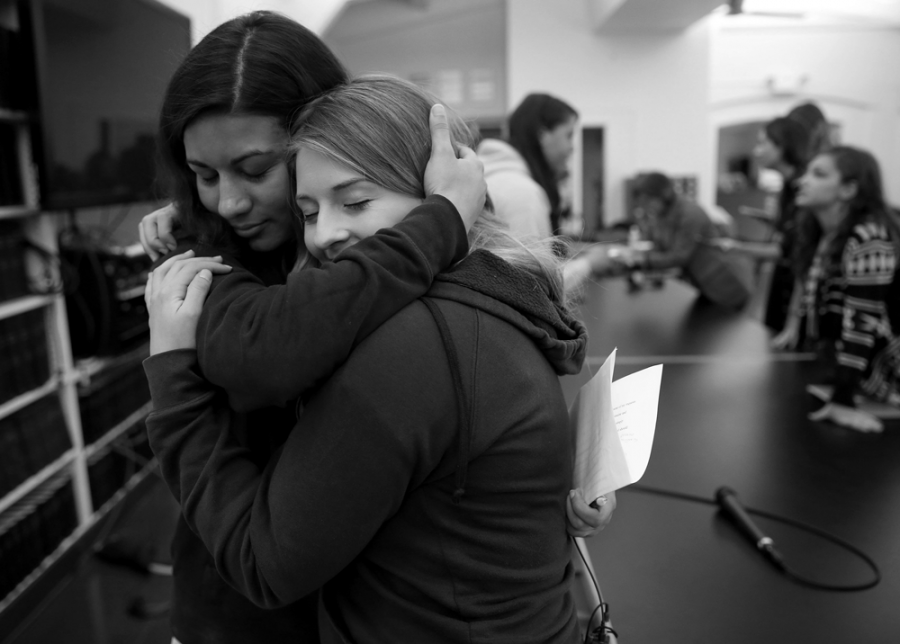UC Berkeley sexual harassment policies questioned
April 14, 2016
UC Berkeley, named one of the “Elite Six” universities by Times Higher Education in 2015, is under fire for questionable disciplinary protocol for sexual misconduct, following the release of documents of an investigation that looked into 17 sexual harassment cases from the last five years.
The investigation’s findings, conducted by the Office for the Prevention of Harassment and Discrimination, were released to The Daily Californian in response to a Public Records Act request filed last month. It found 19 UC Berkeley employees in violation of the college’s sexual harassment policies dating back to 2011, according to The Daily Californian.
Released on April 5, the redacted 463-page report revealed details about the nature of the cases and found the accused to be six faculty and eleven staff members. The East Bay Times reported that three of the accused faculty members resigned, while the other three remain employed by Berkeley as tenured professors.
Out of 12 investigations conducted by the OPHD, four staff members were fired, four resigned and four received various punishments, ranging from salary decreases to temporary suspension, according to The Daily Californian.
One of the cases investigated by the OPHD was that of Berkeley Law School Dean Sujit Choudhry, who resigned from his position on March 10. Choudhry remains employed at Berkeley as a member of the law school faculty under tenure, according to the Washington Post.
Last year Tyann Sorrell, Choudhry’s former executive assistant filed a formal complaint that alleged Choudhry had engaged in unwanted sexual advances, such as frequent hugging, kissing and petting of Sorell, which spanned from September 2014 to March 2015, according to The Daily Californian.
After the investigation concluded in July 2015 it found Choudhry guilty of sexual harassment, Executive Vice Chancellor and Provost Claude Steele stated that Choudhry would receive a 10 percent cut to his salary for one year and would be required to write Sorrell an apology letter as repercussions for his actions, according to The Daily Californian.
“I’m shocked at what appears to have been a deliberate suppression of years of sexual abuse and harassment information on the part of executive level at UC Berkeley,” said Sorrell in a statement.
Sorrell sued Choudhry and the UC Board of Regents last month for sexual harassment. Other cases of similar nature have escalated to the state level.
Vibha Puri, Cal State East Bay Sociology professor specializing in Gender and Prejudice and Discrimination studies, said sexual harassment is one of the most common intimidation tactics used as a power mechanism to control others, primarily women. “The dynamics are the same [for men and women victims of sexual harassment], but nonetheless women are targeted disproportionately more than men because women don’t retaliate the way men do.”
According to Puri, this ties into a larger cultural acceptance of entitlement.
“Men have a lot of power and I think it really speaks to this whole issue of gender differences even today,” Puri said.
Puri believes that prestigious educational institutions often inflict less harsh punishments upon notable faculty members and that this is not a phenomenon limited to UC Berkeley.
“It’s disparity; it’s demeaning and it’s humiliating and I think that it’s very sad that men in power abuse this,” said Puri.
A statement released by UC Berkeley Public Affairs on April 5 announced the creation of the Chancellor’s Committee on Sexual Violence, Harassment and Assault, headed by Chancellor Nicholas Dirks. The committee will examine issues and make recommendations for improving campus policies and practices relating to the prevention of sexual assault, according to the announcement. The committee will begin immediately and report findings to the chancellor, come October 2016.
“We have an obligation to promote a campus culture in which sexual harassment, sexual violence, stalking and any abuse of power are neither tolerated nor ignored, but proactively prevented,” said Chancellor Dirks in a March 24 statement. “We are committed to ensuring that Berkeley is a welcoming, safe, respectful and inclusive community for every one of our students, staff, faculty and visitors.”
















